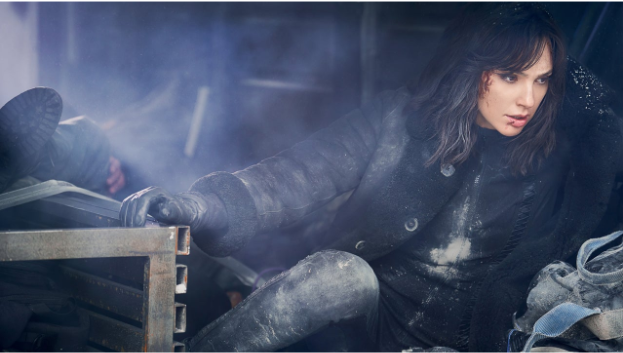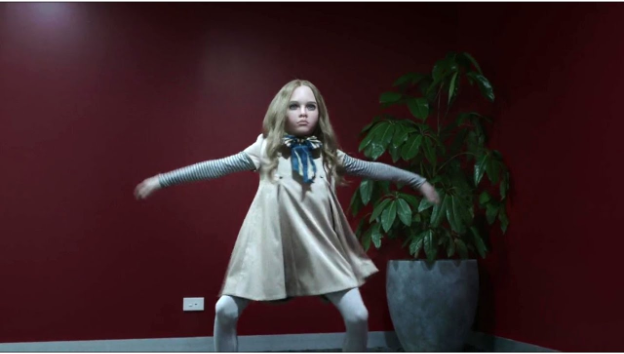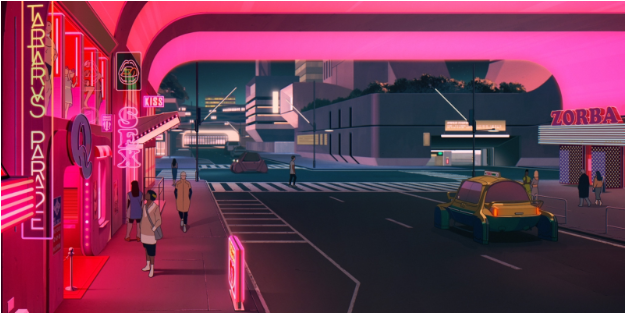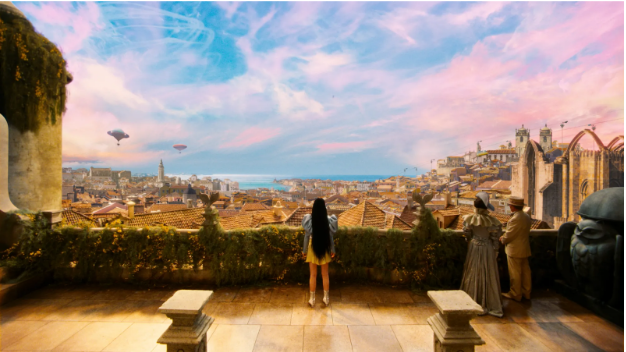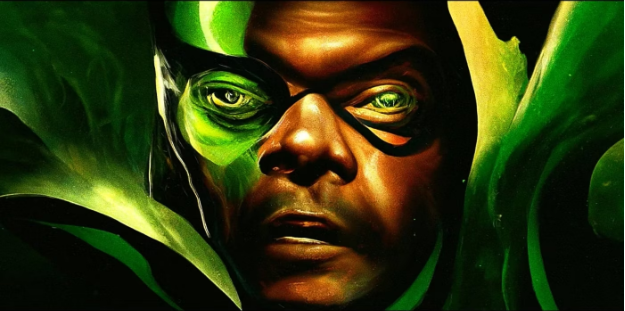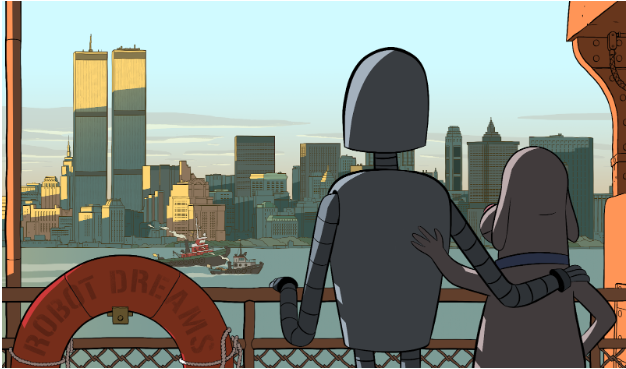2023 in Film, Part 1: ROBOTS
In this series, Jimmy Lanyard explores the relationship between 2023 film releases¹ and what happened in real life that year. Part 1 looks at the way that filmmakers confronted technology on and offscreen.
In 2023, the Writers Guild of America (WGA) and SAG-AFTRA (the Hollywood actors’ union) simultaneously went on strike. This had been a long time coming but the unequal power dynamics of the entertainment industry have gotten even less equal in the past decade as technological ‘innovations’ have continued to undercut labour. One of the most publicised goals of both strikes was to safeguard jobs from the threat of artificial intelligence. For anyone who has watched a Netflix original film this decade, it is probably not surprising that capital would happily let robots write and act-in their films if it saves money, quality be damned! But naturally this practice sits in direct contrast to the very human act of making art.
¹ Full disclosure, my favourite films that I saw as new releases in 2023 were: 1) The Settlers, 2) Killers of the Flower Moon, 3) The Old Oak, 4) Afire, 5) The Eternal Daughter, 6) The Boy and the Heron, 7) May December, 8) EO, 9) Babylon, 10) Poor Things, 11) Mars Express, 12) Autobiography, 13) Monster, 14) All of us Strangers, 15) Showing Up, 16) M3GAN, 17) How to Have Sex, 18) River, 19) Tar, 20) Talk to Me
Heart of Stone is ostensibly a real movie, starring ostensible actor Gal Gadot, ostensibly written by humans working in an industry that is ostensibly worth fighting for.
As someone with enthusiastic luddite tendencies, I have a complicated relationship with films about AI. On one hand, using robots as a metaphor for discrimination can feel a bit tired when those in power have shown time and time again that they value their property (including robots) more than human life and labour. On the other hand, some of my favourite films of all time (and 2023) are about this very topic.
In this writer’s view, all robots are as deserving of love and respect as the demonic M3GAN.
With this in mind, it was a massive breath of fresh air to start the year with a film that, instead of asking “what if we failed to recognise the humanity of robots?”, asked “what if a robot was a little cunt?” After a meme-filled viral marketing campaign, I was astounded to find that M3GAN was actually fun and not just ‘fun’. With Allison Williams as a girlboss mad scientist and the titular doll her irredeemable creation, M3GAN had none of the self-seriousness of so much modern horror (although it’s technically about trauma, the trauma is played for laughs). It doesn’t pull any punches in its depiction of a child addicted to ‘screen time’ as a mostly bad thing which made a tech-skeptic like me feel very pandered to. There isn’t a large language model in the world that could have ever come up with the scene where M3GAN sings Titanium.
The other high-profile 2023 release about AI, The Creator could not have been less interesting to me. The film asks whether you would let robots save humanity, even after robots made a whoopsie that killed a million-or-so people? The film is an absolute debacle, drawing ill-conceived links between robots and Asian people and taking place in a futuristic nation called The Republic of New Asia (!!!). You’re meant to change placeholder names when you submit your final draft!
The stylish Mars Express is too busy looking cool to make profound statements about AI.
At the other end of the spectrum, my favourite film about robots in 2023 could not have felt less timely. Sure, Mars Express is about robot sentience, but it thankfully doesn’t get too bogged down in this overwrought idea. Instead, it uses a pretty boilerplate cyberpunk premise as a jumping off point for a stylish genre romp. It reminded me of a lot of turn-of-the-century sci-fi like The Fifth Element (for its eurotrash sleaze), Interstella 5555 (for its pumping house score) and Ghost in the Shell (for how the convoluted plot is secondary to its aesthetics).
Emma Stone’s performance at the centre of Poor Things is one of the most human of the year.
In an environment where anyone involved in the arts, technology or government is sick of hearing about AI, it’s not surprising that any of the aforementioned films that succeed do so on their looks rather than their brains. That their thematic cousin Poor Things manages to be both gorgeous and smart, is a cause for celebration. Emma Stone has had an absolute blinder of a year, giving her career-best performance on TV in The Curse. Reuniting with her The Favourite director Yorgos Lanthimos, she plays Bella, a woman created by Willem Dafoe’s Doctor Frankenstein stand-in. This is another film about the humanity of a created intelligence, but one where that humanity is tangibly and materially developed through interaction with human society (not in spite of it). Recent (usually English) films about patriarchal violence have dabbled in biological essentialism, sex-negativity and reactionary misanthropy, but Poor Things rejects all of those in favour of a joyful celebration of humanity. If you’ve seen any of Lanthimos’ previous work, you might be surprised to hear he made a feel-good film but, for all the violence and misogyny Bella observes, she charts a path towards overcoming it.
Artificial intelligence also featured in V/H/S/85 whose best sequence TKNOGD takes the piss out of tech utopianism, EO that briefly compares its donkey protagonist’s sentience to a horrid Boston Dynamics dog and Robot Dreams which is a decent film for children that features a robot. More broadly, films like Blackberry, Barbie and Oppenheimer concerned themselves with the concept of creation.
Disney is happy to outsource labour to robots even when it results in whatever this is.
By the end of the year, Hollywood’s acting and writing unions reached tentative agreements that were subsequently ratified. Agreements feature some protections against AI but many in the industry are concerned there hasn’t been an outright ban. It is clear that this issue has been suppressed for the time-being (or at least in time for awards season) but the contradictions between artistry and technology are far from resolved. This is a year in which Disney let AI design the opening credits of one of its highest profile shows. One need only briefly gaze at this hideous simulacrum of human creativity to come to the conclusion that the MCU’s much-publicised death cannot come soon enough.
Margot Robbie’s performance in Babylon is the best argument for film as a sacred artform.
Artists in the film industry struggling to adapt to new technology is the name of the game of the glorious Babylon. Like Singin’ in the Rain, before it, it pits its silent filmmaker protagonists against the paradigm shift of synchronised sound. It is clear that director Damien Chazelle feels at least a little sheepish about La La Land’s love letter to Los Angeles in that he made a three hour film about how that love sits uneasily with the exploitative industry itself. Babylon is way too long, uneven and messy but whenever Margot Robbie is onscreen, one cannot help but believe that movie stardom contains an almost supernatural quality that (almost) justifies the grossness of Hollywood. I’d be cautious about drawing too many parallels between the current moment and the end of the silent period. Sound design, unlike AI, at least requires a human artist. But with its much-mocked invocation of Avatar, it’s clear that Babylon has both the 1920s and 2020s on its mind.
Robot Dreams is set in a world where robots can dream (and 9/11 hasn’t happened).
With little more than gaffer tape covering up the rifts between art, labour and technology, I think we can expect to see the film industry keep fighting the same battles in front of and behind the camera. For every sci-fi film that approaches these tensions in interesting ways, we will keep seeing others that are annoying, reactionary or written by robots themselves. While any solution under capitalism is going to be temporary, it’s been genuinely heartening to see Hollywood labour exerting its strength for good.
Jimmy Lanyard is an unexceptional Pākehā public servant from Te Whanganui-a-Tara. While he is not doing Borat impressions for the graduate advisors, he enjoys matching his sneakers with his Barkers suit, drinking almond flat whites and watching supercuts of Air New Zealand safety videos. Listen to Jimmy talk about film on Dinner and a Movie podcast with Nabilah Husna Binte Abdul Rahman.


